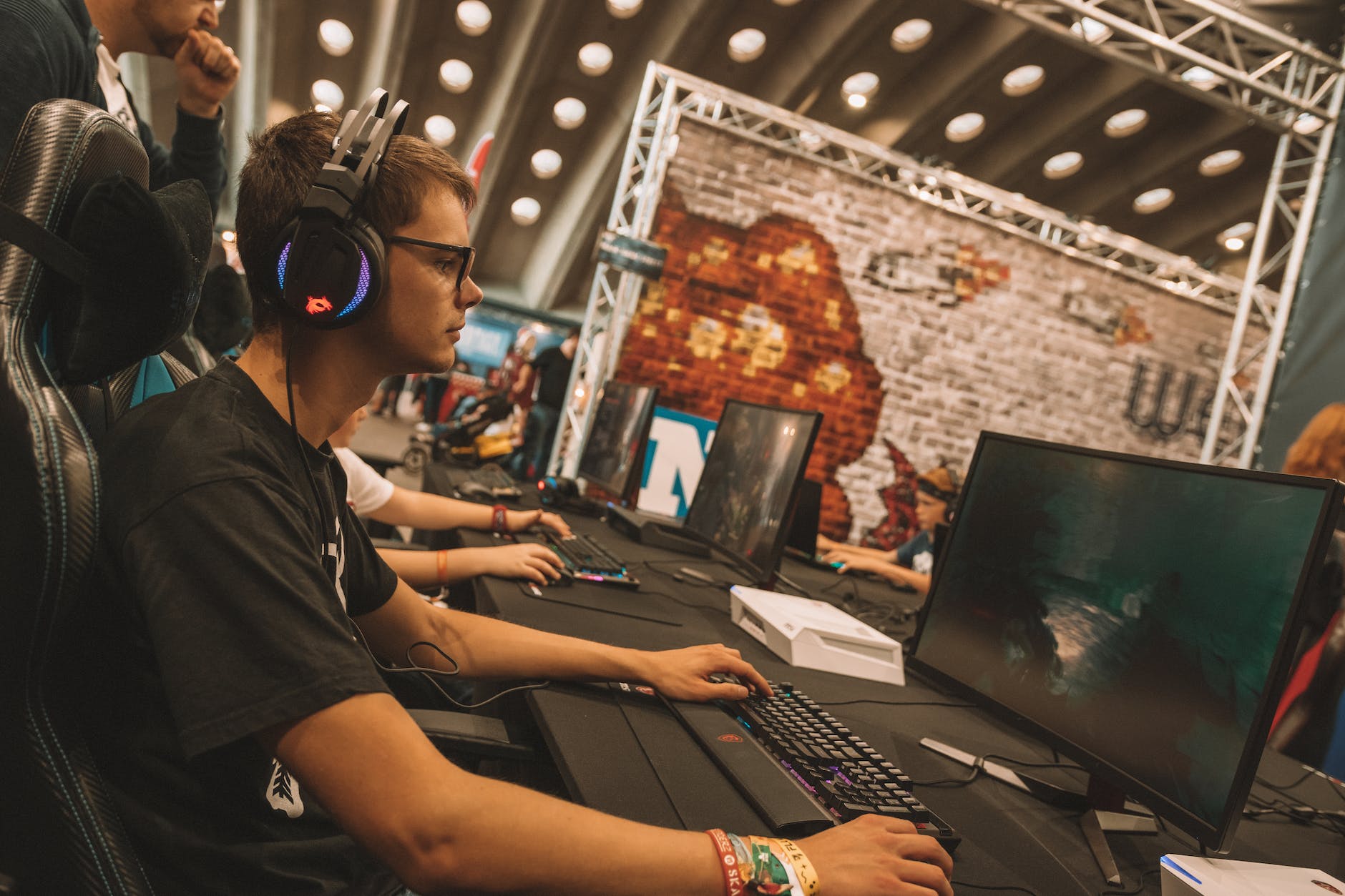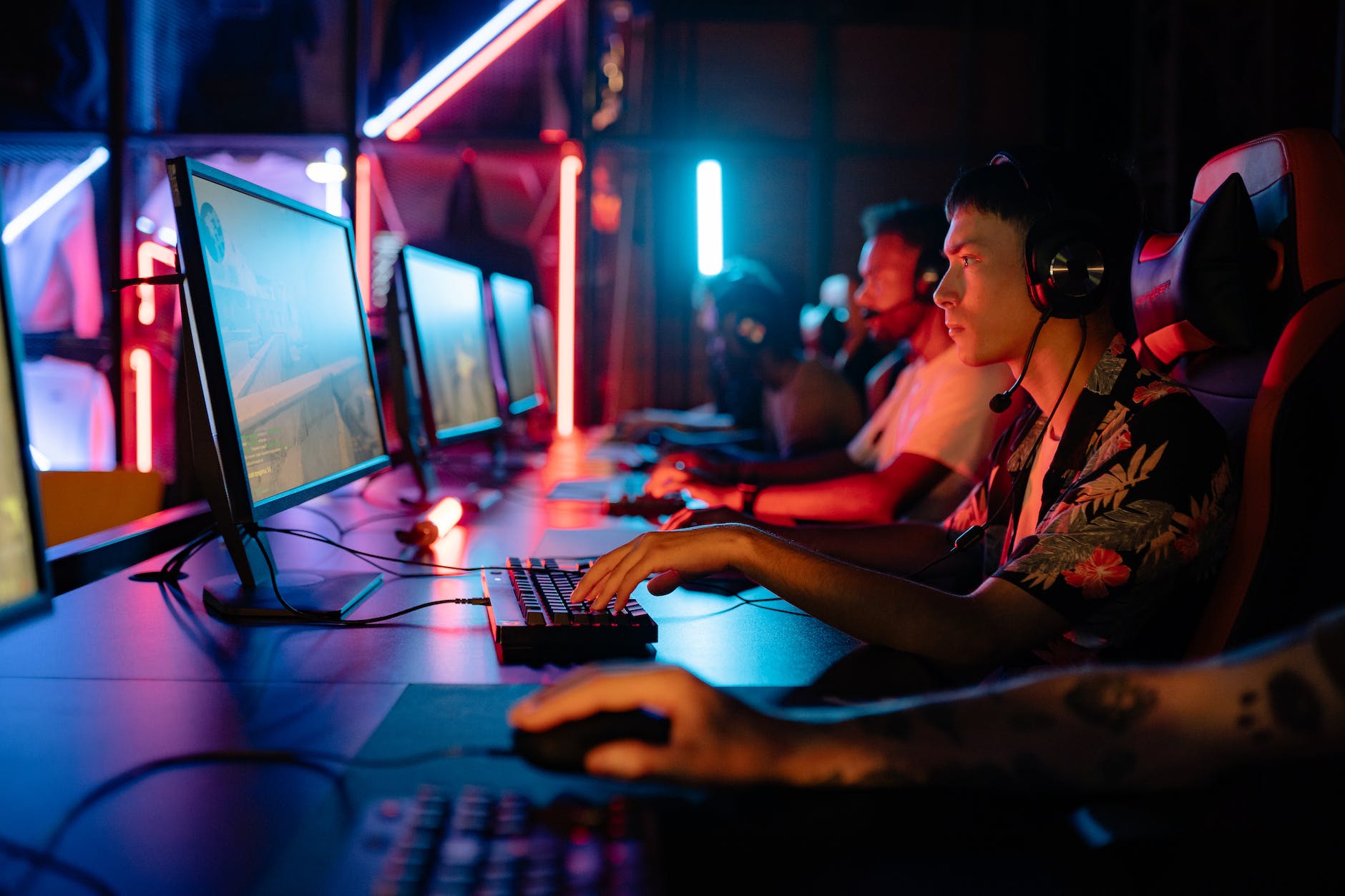Welcome to the world of professional gaming, a realm where passion, skill, and strategy merge to create an enthralling spectacle. In essence, professional gaming, also known as eSports, involves individuals or teams competing in video games at a professional level. The games vary widely, encompassing genres from first-person shooters to real-time strategy, and each one requires a unique set of skills and tactics.
Being a professional gamer is not just about playing games for fun; it’s about honing your skills, understanding the intricacies of each game, and pushing the limits of your abilities to outperform your rivals. It requires dedication, discipline, and a deep understanding of gaming mechanics. The stakes are high, and the competition is fierce, but the rewards – both financially and personally – can be immense.
Professional gaming has evolved from a niche hobby into a global phenomenon, attracting millions of followers and generating billions of dollars in revenue. Its impact on popular culture is undeniable, influencing everything from entertainment to technology. Whether you’re a seasoned gamer, an aspiring professional, or just curious about this new arena, this article will serve as your guide through the exciting realm of professional gaming.
Brief History of eSports
The roots of professional gaming can be traced back to the 1970s, with the advent of arcade games. However, the first recognized eSports event was the Space Invaders Championship held by Atari in 1980, attracting over 10,000 participants across the United States. This event marked a pivotal moment in gaming history, demonstrating the potential for competitive gaming.
In the 1990s, the rise of the internet and home computers facilitated the growth of online gaming, setting the stage for the development of eSports. Games like Quake and Counter-Strike became popular platforms for online competitions. Towards the late 90s, organizations like the Cyberathlete Professional League (CPL) and the Professional Gamers League were established, heralding the birth of organized professional gaming.
The 21st century saw exponential growth in eSports, with the arrival of streaming platforms like Twitch and massive multiplayer games like League of Legends and Dota 2. These developments have propelled eSports into the mainstream, with professional tournaments garnering millions of viewers worldwide.
The Rising Popularity of Professional Gaming
The popularity of professional gaming is soaring, with a rapidly growing global audience and increasing recognition as a legitimate sport. The global eSports audience reached nearly 500 million in 2020, with revenues exceeding a billion dollars. The rise can be attributed to several factors, including technological advancements, the proliferation of online streaming platforms, and the growing acceptance of gaming as a professional career.
“Professional gaming isn’t just about skill, it’s about dedication. The most epic victories don’t come from talent alone, but from the relentless pursuit of mastery and the belief that a win is always within reach.”
The appeal of professional gaming lies in its accessibility and inclusivity. Anyone with a gaming device and an internet connection can participate, regardless of physical ability or location. Additionally, the diverse range of games available ensures that there is something for everyone, from action-packed shooters to strategic board games.
Furthermore, the advent of live streaming has revolutionized the way we consume eSports. Platforms like Twitch and YouTube Gaming allow fans to watch their favorite players and teams in real time, fostering a sense of community and engagement. The ability to interact with players and other fans has made eSports a uniquely interactive and social experience.
Overview of Professional Gaming Tournaments
Professional gaming tournaments are the heart of eSports, showcasing the highest level of competitive gaming. These events range from local competitions to international championships, with prize pools reaching millions of dollars. Some of the most prestigious tournaments include The International for Dota 2, the League of Legends World Championship, and the Fortnite World Cup.
The format of these tournaments varies depending on the game. Some tournaments are single-elimination, where a single loss results in elimination, while others follow a double-elimination or league format. Competitions may take place online or in physical venues, with some of the larger events attracting tens of thousands of spectators.
Aside from the thrill of competition, these tournaments provide opportunities for professional gamers to earn significant income. Top players can earn hundreds of thousands, even millions, of dollars from prize money, sponsorships, and streaming revenue.
How to Get Started in Professional Gaming
Breaking into professional gaming requires more than just a love for video games. It demands time, commitment, and a strategic approach. Here’s a step-by-step guide to getting started in professional gaming.
Firstly, choose a game that you’re passionate about and willing to invest significant time into mastering. Research the competitive scene of the game to understand its mechanics, strategies, and meta.
Next, invest in the right equipment. This could range from a high-performance PC or console to a comfortable gaming chair. Good equipment can enhance your gaming experience and optimize your performance.
Lastly, join a community. Whether it’s an online forum, a local gaming club, or a competitive team, being part of a community can provide valuable learning opportunities, support, and motivation.

Training and Strategies for Professional Gaming
Training is a crucial aspect of professional gaming. It involves not only improving your gaming skills but also developing your mental agility, strategic thinking, and physical endurance. Many professional gamers train for up to 10 hours a day, incorporating a mix of gameplay, analysis, and physical exercise into their routine.
Strategies in professional gaming vary widely depending on the game. However, some general strategies include studying game mechanics, analyzing opponents’ tactics, and adapting your strategy in response to in-game events. Effective communication is also crucial in team-based games, as it facilitates coordination and strategic planning.
Despite the importance of training and strategies, it’s crucial to maintain a balanced lifestyle. Overtraining can lead to burnout and health issues, so it’s important to take regular breaks, maintain a healthy diet, and engage in physical activity.
The Pros and Cons of Professional Gaming
Like any career, professional gaming has its pros and cons. On the positive side, it offers the opportunity to turn a passion into a profession. The thrill of competition, the satisfaction of improvement, and the chance to connect with a global community of gamers are among the unique perks of a career in eSports.
However, professional gaming also has its challenges. The industry is highly competitive, with countless gamers vying for a limited number of professional opportunities. The pressure to perform can be immense, leading to stress and mental health issues. The lifestyle can also be isolating, with long hours spent training alone or online.
Success Stories in Professional Gaming
Despite the challenges, there are many success stories in professional gaming. Players like Johan ‘N0tail’ Sundstein, Lee ‘Faker’ Sang-hyeok, and Kyle ‘Bugha’ Giersdorf have risen to the top of their respective games, earning millions in prize money and becoming global celebrities in the process.
These players serve as a testament to the potential of a career in professional gaming. Their stories inspire aspiring gamers around the world, demonstrating that with talent, dedication, and a bit of luck, it’s possible to achieve remarkable success in eSports.
The Future of Professional Gaming and eSports
The future of professional gaming looks promising. With growing audiences, increasing investment, and rising recognition, eSports is poised to become a mainstream form of entertainment. Technological advances, like virtual reality and cloud gaming, promise to enhance the gaming experience, making it more immersive and accessible.
Moreover, the integration of eSports into traditional sports is a growing trend. Many professional sports teams are establishing their own eSports teams, and competitive gaming is being considered for inclusion in the Olympics. These developments suggest that the line between traditional sports and eSports is blurring, signaling a new era for professional gaming.
Conclusion
Navigating the realm of professional gaming can be as exhilarating as it is challenging. From its humble beginnings to its rise as a global phenomenon, eSports has transformed the way we perceive and engage with video games. Whether you’re an aspiring professional gamer, a passionate fan, or a curious observer, there’s no denying the impact and potential of eSports. As we continue on this journey, let’s embrace the excitement, the competition, and the community that make professional gaming truly unique.
Remember, in the world of eSports, the game is just the beginning.
Unraveling the Brilliance of Diamond Rap Albums: A Deep Dive





